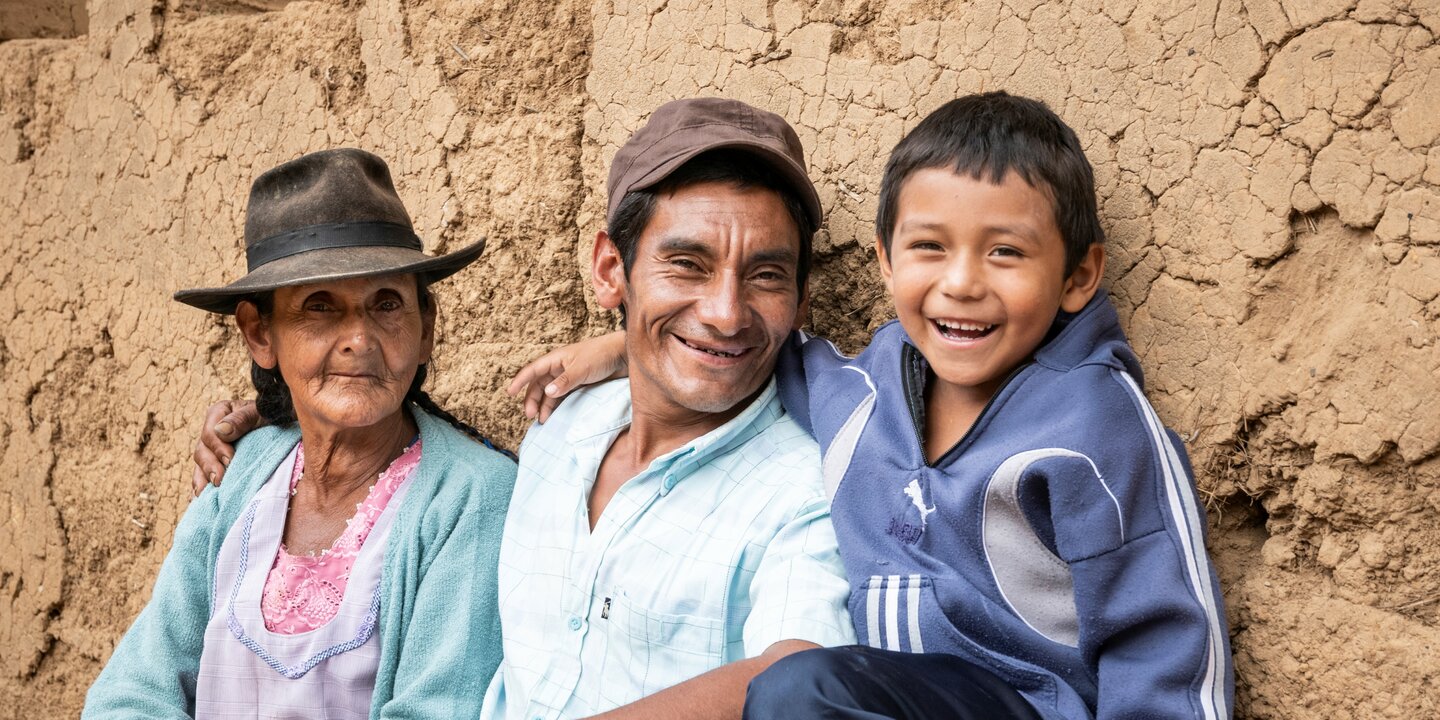Its relevance is clear but not its actual meaning and practical application, which largely remain fuzzy.
In this blog post, we use the opportunity group methodology implemented by the Skills for Rural Employment Project (S4RE) in Kosovo to show what facilitation looks like in practice. The project had more intensive and direct support during phase one (2013-2016) than phase two (2016-2018). It has shifted its role in phase two to the anchoring of solutions into the local economic and institutional framework built on local initiative, ownership and capacities.
Context
Socio-economic conditions in Kosovo have left about 57% of youth aged 15-24 unemployed. Unemployment is more evident in rural parts, even higher for women and minorities. S4RE started in January 2013 to contribute to employment and income opportunities in rural areas of Kosovo by combining local economic development and skills development. It targets areas and beneficiaries that are not sufficiently serviced by the formal vocational education and training system.
The opportunity group methodology introduced first by the project in Kosovo, encourages young people to come together in peer groups to share, learn and apply newly acquired technical, entrepreneurial and life skills. The content can be tailored to the background of young people and their local context; it takes into account locally available resources and opportunities. The methodology is proving to be successful: out of the 1,508 participants of 150 groups organised over three years, 945 found a job or were self-employed. Most of them are active in agribusinesses such as fruit cultivation and beekeeping; others work in non-agribusiness trades such as hairdressing, tailoring, central heating and IT. Young people found opportunities in the local economic context and realised that migration to urban centres or outside of Kosovo does not always need to be the only option.
Role of S4RE in phase one
The key question the project asked during phase one was: “how could it solve the problems young women and men in the rural areas were facing?” In doing so, the project took up key functions like training and directly supported the target group. It also reached out young women and men in their communities for ensuring that access was not hindered by distance or social restrictions. It mobilised young women and men, identified their needs, worked in advocacy towards the local authorities for training provision and engagement in economic activities.
The direct interventions of the project to some extent enabled to create acceptance by the local authorities and the communities. This contributed to secure access to financial and other local resources such as land, tools, offices and materials. By developing a close and effective working relationships with local authorities, S4RE succeeded in raising awareness about the need for municipalities to invest in local skills development. While such a direct approach could achieve quick results, it did have limited sustainability, it was often unable to achieve scale, and its effect on the employment and income markets appeared to be distortionary.
Phase two: partnering with local actors to ensure ownership and scale
The role of the project in phase two required a shift to ensure initiatives and their impacts continue beyond the project’s lifespan. For this, the project essentially asked questions such as “why has the skills development system not been working for the target group?” “What needs to change to make the system more functional and pro-poor?” These questions enable the project to avoid delivering directly key changes in employment and income.
Instead of implementing the methodology only with project resources, it has started working with partners who have incentives and capacities to take over the implementation. Actors involved in the methodology include local facilitators, municipal authorities, employment offices, youth and women organisations. Specifically, the project seeks to take forward key lessons from phase one and shift its implementation from project-driven solutions towards strengthening and institutionalising local ownership and capacities.
Local partners as drivers of interventions
The involvement of local authorities in the municipalities that the project works has been essential to mobilise different stakeholders. Relevant municipal departments provide helpful experience as well as material and financial resources. S4RE stimulates local actors to align skills and training programmes with local economic development strategies, equipping them with the tools to develop innovative and inclusive job creation strategies.
The municipality of Viti, for example, is interested and has agreed to empower the Local Youth Action Council (LYAC) and Youth Centre (YC), who are entitled by Law on Youth to ensure youth empowerment and participation at local level. These two youth organisations have started implementing the training interventions using opportunity group methodology at the local level, thereby collaborating closely with the private sector, relevant municipal departments, and the employment office.
The facilitative role of the project also requires collaborative actions at the national level. The project has partnered with the Central Youth Action Councils (CYAC) to ensure the incorporation of actors at the national level through, for example, the Ministry of Culture, Youth and Sport to involve LYACs and YCs in other municipalities where S4RE does not operate.
Training quality is assured through collaboration with Vocational Training Centres (Ministry of Labour and Social Welfare) to monitor the training and perform the competency test. Successful trainees obtain a certificate recognised nationally. In addition, monitoring and certification by a governmental body increases confidence of the trainees and credibility of the trainees to the community they serve.
Capacity development and coaching of partners
For partnerships to be effective, S4RE engages and interacts with key actors to identify the underperformance, mismatch or lack of functions for the opportunity group methodology to succeed. This requires the project to identify business models (for both public and private sector) that allow the sustainable delivery of essential services. This means the project’s support to one partner should not prevent other actors in the local context to adopt the same or similar solution/innovation. Locally available training providers impart the training content based on the background of the opportunity group members, context and locally available opportunities. The reliance on local resources significantly contributes to a positive impact in terms of ownership and proactive participation by the community. LYACs, YC and CYAC are thus able to adapt knowledge, practices and lessons learnt during phase one in order to better reflect and address the demands of young women and men.
Some examples of roles for the project include support towards awareness-raising (i.e. understanding of what is needed and the potential of providing services); product research and development; business model development (i.e. developing a model that allows a sustainable delivery of services); and initial start-up support in the form of coaching and advice. As a case in point, together with CYAC and several LYACs, the project has elaborated a manual on the opportunity group methodology. The manual shall act as a guidance tool for persons who train young men and women, and as an orientation tool for institutions who inform and advise unemployed young women and men. Additionally, S4RE provides coaching to the partners in implementing opportunity group methodology.
Key takeaways
First, facilitation is a temporary role of a project to support target groups through the engagement of other actors. This does not mean that direct support is necessarily bad and should be avoided. It leads to quick results even though at the expense of long-term and bigger impacts. Indeed, a facilitative approach also takes time to produce results, and stakeholder management (through information sharing on progress) is highly helpful. Here temporary means “time-bound” actions that enable to:
- address the main constraints or root causes identified by a project;
- scale down or phase out interventions or the project when the constraints or root causes are addressed;
- monitor and measure whether the role of a project is contributing towards addressing the constraints or root causes.
Second, the willingness of project staff to facilitate change process should also be matched by required skills. Investing in formal and non-formal coaching of staff from the outset of project design contributes a lot. Some of these skills include adept communication with a range of actors and stakeholders; being entrepreneurial and credible to key actors; the capacity to assess demands/needs, provide support and guide the change process.
Third, there is no “one-size-fits-all” approach to successful pro-poor facilitation. Tailor-made “packages” of interventions built around local realities/contexts are required, which also should be right-sized (e.g. not to overload actors due to unrealistic expectations and reporting requirements or exceeding competence/norms of players/system).
Additional sources
Authors
Mimoza Mirashi is a Senior Skills/Training Officer and Communication at Skills for Rural Employment Project (S4RE). Since 2013, she has been responsible for project activities related to improving access of youth, women and minorities to employment related information and skills, addressing challenges at the local level using opportunity group methodology.
Luan Hoti has more than 15 years of experience in successful implementation of various Helvetas projects in Kosovo. Since 2013 is the Project Manager of Skills for Rural Employment (S4RE) project. His area of interest is development of the labour markets for vulnerable groups using different approaches and methodologies.



